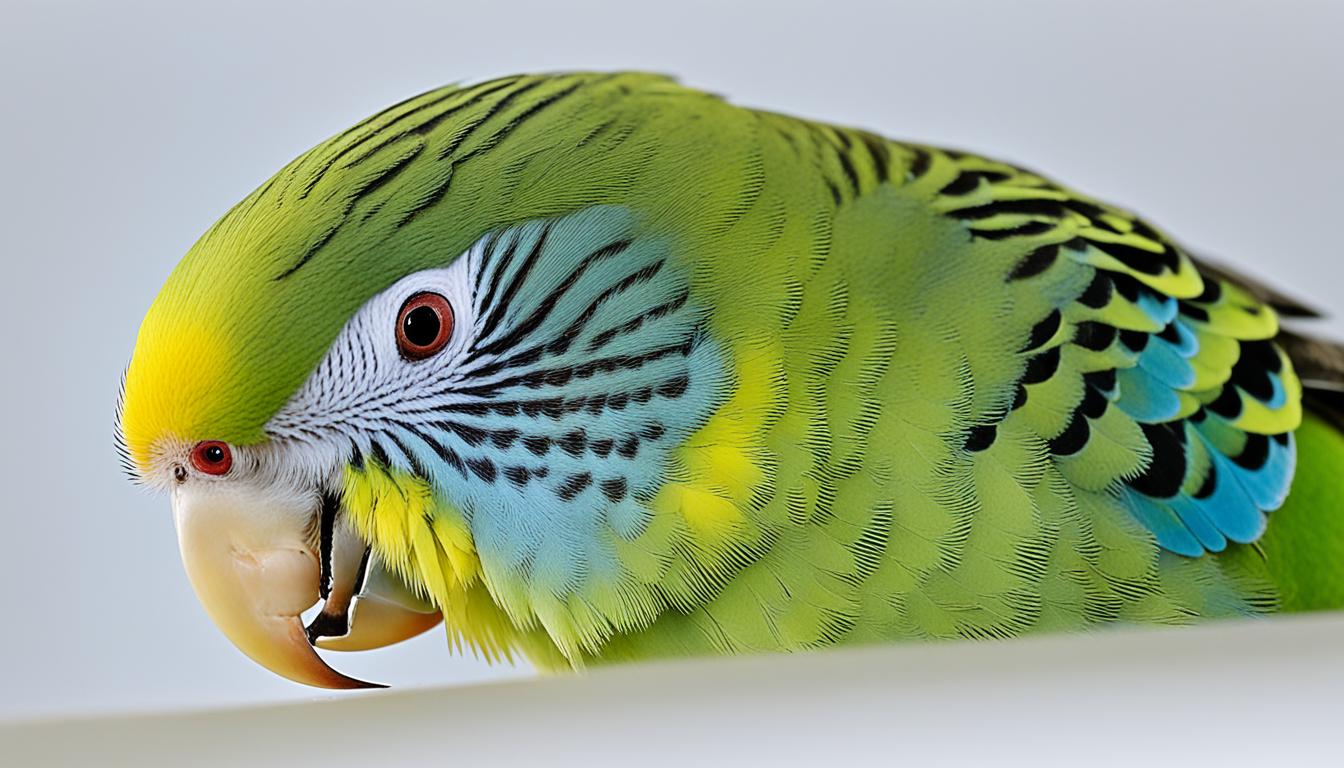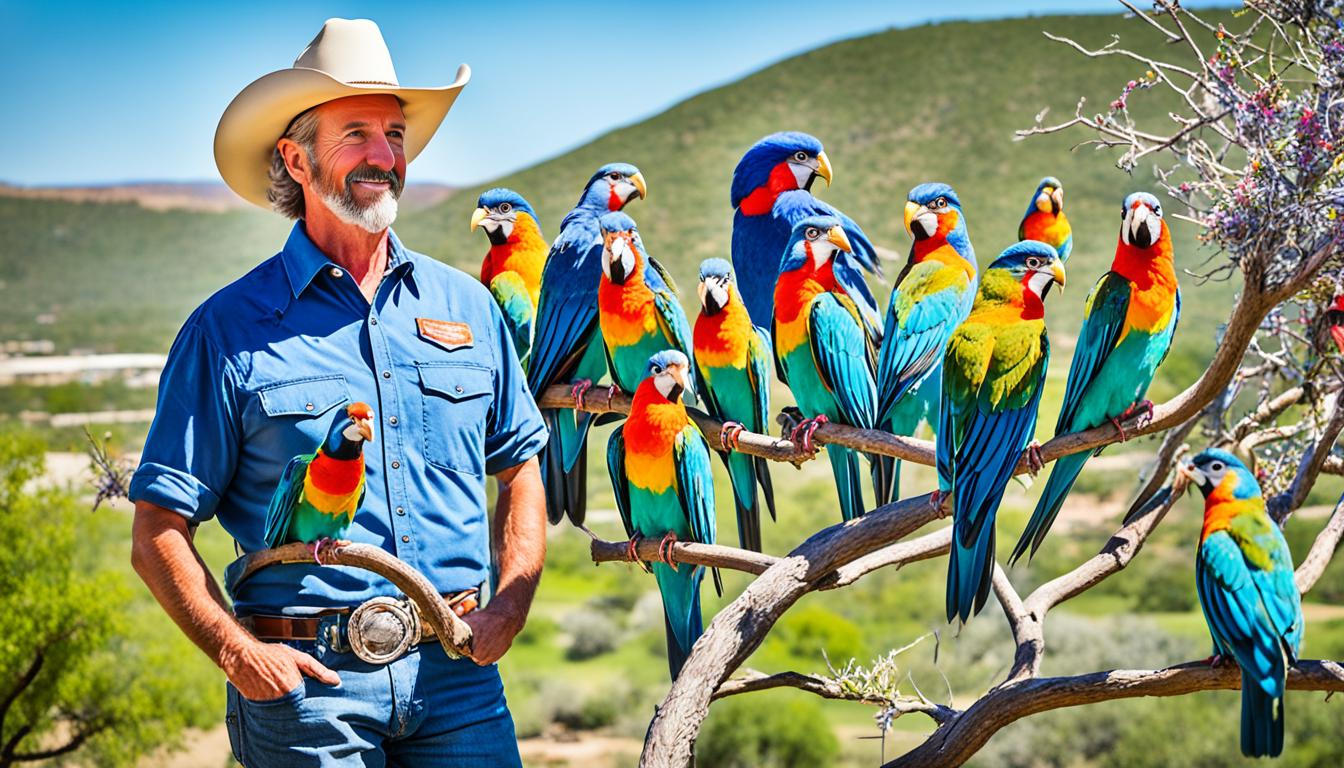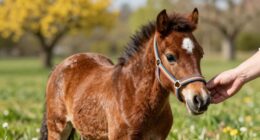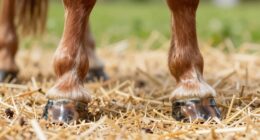Did you know that quinoa, the trendy superfood adored by health-conscious individuals, can also be a great option for our winged companions? Although it may be unexpected, birds can indeed consume quinoa and reap its nutritional benefits. Nonetheless, there are essential factors to keep in mind before incorporating this grain into their diet.
Key Takeaways:
- Birds can safely eat quinoa when the bitter saponin coating is removed through soaking.
- Quinoa provides essential nutrients for birds, including protein, vitamins, minerals, and fiber.
- Other grains like wheat, brown rice, millet, and maize can also be included in a bird’s diet.
- Quinoa can be enjoyed by various bird species, but it should be part of a balanced diet.
- When feeding quinoa to birds, rinse it thoroughly and avoid adding spices or salt.
Can Birds Eat Quinoa? Understanding the Safety and Benefits.
Birds can safely eat quinoa, as long as the saponin coating is removed through soaking. Quinoa is a superfood for both humans and birds, providing essential nutrients that support birds’ overall health and well-being.
Quinoa is packed with protein, which is vital for muscle development and growth. It also contains a variety of water-soluble vitamins such as B6, riboflavin, thiamin, and niacin, which contribute to birds’ energy metabolism and overall vitality. Additionally, quinoa is a rich source of vitamin E, known for its antioxidant properties that support a healthy immune system.
The mineral content of quinoa, including iron, copper, zinc, iodine, manganese, selenium, calcium, phosphorus, and potassium, promotes various physiological functions in birds. These minerals play crucial roles in egg production, reproduction, immune system function, calcium absorption, and maintaining healthy feathers.
Furthermore, quinoa contains flavonoids, such as quercetin and kaempferol, which have antioxidant and anti-inflammatory properties. These compounds contribute to birds’ overall health by supporting their immune system and protecting against oxidative stress.
In addition to its nutrient content, quinoa is also a good source of lysine, an essential amino acid that supports protein synthesis and feather health in birds. The fatty acids found in quinoa contribute to the proper functioning of birds’ nervous systems and promote healthy skin and feather growth.
Finally, quinoa is high in fiber, which aids in digestion and supports a healthy gut microbiome in birds.
Overall, incorporating quinoa into birds’ diet can provide them with an array of essential nutrients, promote their well-being, and contribute to their overall health.

Key Benefits of Quinoa for Birds:
- Rich in protein for muscle development and growth
- Water-soluble vitamins for energy metabolism and overall vitality
- Abundant in minerals that support egg production, reproduction, and immune system function
- Flavonoids with antioxidant and anti-inflammatory properties for overall health
- Lysine for protein synthesis and feather health
- Fatty acids for nervous system function and healthy feathers
- Fiber for digestion and a healthy gut
Preparing Quinoa for Birds: Cooking, Sprouting, and More.
When it comes to preparing quinoa for our feathered friends, there are a few methods to consider. Whether you choose to cook, sprout, or serve it raw, quinoa can be a nutritious addition to a bird’s diet.
Cooking Quinoa for Birds
If you prefer to offer cooked quinoa to your birds, it’s essential to follow these steps:
- Rinse the quinoa thoroughly to remove any residue or bitterness.
- Cook the quinoa until it becomes soft. Avoid using any seasonings or additives.
- Allow the cooked quinoa to cool down completely before serving it to your birds.
Sprouting Quinoa for Birds
Sprouting quinoa is a great way to enhance its nutritional value and provide birds with a fresh treat. Here’s how to sprout quinoa:
- Wash the quinoa seeds thoroughly.
- Soak the quinoa in cold water for approximately an hour.
- Drain the water and let the quinoa sit for about 24 hours until sprouts begin to appear.
Raw Quinoa and Quinoa Flakes
If you prefer to serve quinoa to your birds without cooking or sprouting, you can give them raw quinoa seeds. Simply soak the seeds in cold water and allow them to dry before offering them as a snack. Another option is to provide quinoa flakes, which are pressed grains. These can be served directly or boiled for a slightly softer texture.

Offering organic quinoa without the saponin coating is another way to provide uncooked quinoa to birds while ensuring their safety and enjoyment.
By exploring different ways of preparing quinoa, you can offer your avian companions a variety of textures and flavors while providing them with the nutritional benefits of this superfood.
Alternatives to Quinoa: Other Grains Birds Can Eat.
While quinoa is a nutritious option for birds, there are other grains that can also be included in their diet. Wheat, brown rice, millet, and maize are good alternatives that provide protein, dietary fiber, B-complex vitamins, fats, and various minerals. These grains can be mixed with quinoa or served separately to ensure a balanced diet for birds.
| Grain | Benefits |
|---|---|
| Wheat | Good source of protein, fiber, and B-complex vitamins |
| Brown Rice | High in fiber, minerals, and antioxidants |
| Millet | Provides energy, protein, and essential amino acids |
| Maize (Corn) | Rich in carbohydrates, fiber, and various vitamins and minerals |
Birds will benefit from a varied diet that includes these grains along with quinoa. Mixing different grains ensures that birds receive a diverse range of nutrients to support their overall health and well-being.

Birds That Enjoy Quinoa: Adding It to Their Diet.
Quinoa is not only a nutritious option for humans but also for various bird species. Adding quinoa to the diets of these birds can offer numerous benefits and enhance their overall health and well-being. Some of the bird species that enjoy quinoa include:
- Finches
- Doves
- Pigeons
- Robins
- Canaries
- Parakeets
- Lovebirds
- Cockatiels
- Parrots
You can introduce quinoa to these birds by mixing it with their regular seed or grain mix or by providing it separately. The addition of quinoa to their diet can contribute to their growth, feather health, protein synthesis, reproduction, and immune system.

Benefits of Quinoa for Birds
“The nutritional value of quinoa makes it an excellent choice for birds. Its high protein content, essential vitamins, and minerals make it a valuable addition to their diet.”
Quinoa is a rich source of protein, providing essential amino acids that support birds’ growth and muscle development. It also contains vitamins, including vitamin E, which promotes feather health, and B-complex vitamins that are essential for energy metabolism. The minerals present in quinoa, such as iron, copper, zinc, and calcium, contribute to various physiological processes in birds, including bone health and egg production. Additionally, the presence of flavonoids, lysine, fatty acids, and fiber in quinoa further enhances its nutritional value for birds.
Nutritional Content of Quinoa
| Nutrient | Quantity per 100g |
|---|---|
| Protein | 14g |
| Water-soluble vitamins (B6, riboflavin, thiamin, niacin) | High |
| Vitamin E | 2.4mg |
| Minerals (iron, copper, zinc, iodine, manganese, selenium, calcium, phosphorus, potassium) | Varied |
| Flavonoids (quercetin and kaempferol) | Present |
| Lysine (amino acid) | 740mg |
| Fatty acids | 1.9g |
| Fiber | 7g |
Importance of a Balanced Diet for Birds.
While quinoa is a nutritious food for birds, it is essential to offer them a balanced diet that includes a variety of foods. A balanced diet ensures that birds receive all the essential nutrients they need to thrive and maintain optimal health. Incorporating different types of bird food into their diet provides a well-rounded nutritional intake, supporting various aspects of their well-being.
When birds consume a balanced diet, it has several benefits for their overall health and development. Let’s explore the importance of a balanced diet for birds:
- Maintains overall health: A balanced diet helps birds maintain their overall health and vitality. It provides the necessary energy and nutrients to support their bodily functions and metabolic processes.
- Supports growth and muscle development: Young birds or those in the breeding season require proper nutrition to support their growth and muscle development. A balanced diet ensures they receive adequate protein and essential nutrients for these processes.
- Aids digestion: Including a variety of foods in a bird’s diet helps promote healthy digestion. Different foods contain varying amounts of fiber, which aids in proper digestion and prevents digestive problems.
- Promotes bone health: Calcium and other minerals are crucial for the development and maintenance of strong bones in birds. A balanced diet that includes calcium-rich foods supports healthy bone structure and prevents conditions like brittle bones.
- Maintains beak health: Certain nutrients, such as vitamin A, are essential for maintaining healthy beaks in birds. A balanced diet ensures birds receive these nutrients, promoting proper beak growth and preventing abnormalities.
- Boosts immunity: A diverse diet that includes different foods provides birds with a range of essential vitamins and minerals that support their immune system. A strong immune system helps birds fight off infections and diseases.
By offering a balanced diet, you provide your feathered friends with the best possible nutrition, enhancing their overall well-being and quality of life. Variety is key when it comes to bird nutrition, as different foods offer unique nutritional profiles.
Sample Daily Diet for Birds:
| Food Type | Examples |
|---|---|
| Seeds and Grains | Millet, wheat, brown rice |
| Fruits and Vegetables | Apples, spinach, carrots |
| Protein | Quinoa, boiled eggs, mealworms |
| Calcium | Cuttlebone, eggshells, calcium supplements |
| Treats | Nuts, dry fruits, puffed rice |
Incorporating a mix of these food categories into your bird’s diet ensures they have access to a wide range of nutrients, supporting their overall health and well-being. The table above can serve as a starting point, but it’s important to research the specific dietary requirements of your bird species for personalized guidance.
Remember, a balanced diet is crucial for birds, and variety is key. Offering a diverse range of foods ensures they receive a well-rounded nutritional intake and enjoy their meals to the fullest.

How to Safely Feed Quinoa to Birds: Tips and Considerations.
When it comes to safely feeding quinoa to birds, there are a few important tips and considerations to keep in mind. By following these guidelines, you can ensure that your feathered friends enjoy quinoa while maintaining their well-being.
- Rinse thoroughly: Before serving quinoa to birds, it is crucial to rinse it thoroughly. This helps remove any impurities and residues that may be present, ensuring a clean and safe meal for the birds.
- Avoid spices and salt: It is essential to avoid adding any spices or salt to quinoa when serving it to birds. These additives can be harmful to their health. By offering plain, unseasoned quinoa, you can safely provide them with a nutritious and flavorful snack.
- Include in a varied diet: While quinoa is a healthy addition to a bird’s diet, it should not be the sole source of nutrition. It is important to incorporate quinoa into a varied diet that includes other bird foods such as seeds, fruits, and vegetables. This ensures a balanced nutritional intake and supports overall bird health.
- Prevent pest attraction: Leftover quinoa can attract pests such as ants or rodents. To avoid this, make sure to monitor any uneaten quinoa and remove it promptly. Keeping the feeding area clean and free from leftover food can help prevent unwanted visitors.
By following these tips and considerations, you can safely feed quinoa to birds and provide them with a nutritious and enjoyable meal. Remember to always prioritize their health and well-being by offering a balanced and diverse diet.

Conclusion: Birds Can Enjoy Quinoa as a Healthy Addition to Their Diet.
In conclusion, birds can safely eat quinoa as long as it is properly prepared by removing the saponin coating through soaking. Quinoa offers numerous health benefits for birds, including protein, vitamins, minerals, flavonoids, fiber, lysine, and fatty acids. It can be served to various bird species, such as finches, doves, pigeons, robins, canaries, parakeets, lovebirds, cockatiels, and parrots.
Including quinoa in their diet can contribute to their overall health, growth, muscle development, digestion, bone health, beak health, and immunity. However, it is important to remember that quinoa should be part of a balanced diet that includes a variety of foods. By incorporating quinoa along with other nutritious bird foods, you can provide your feathered friends with a well-rounded nutritional intake.
So, why not add some quinoa to your bird’s diet and watch them enjoy this healthy and tasty addition? Your birds will appreciate the variety, and you’ll feel satisfied knowing you’re providing them with a beneficial and nutritious meal. Cheers to happy and healthy birds!








